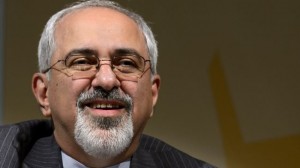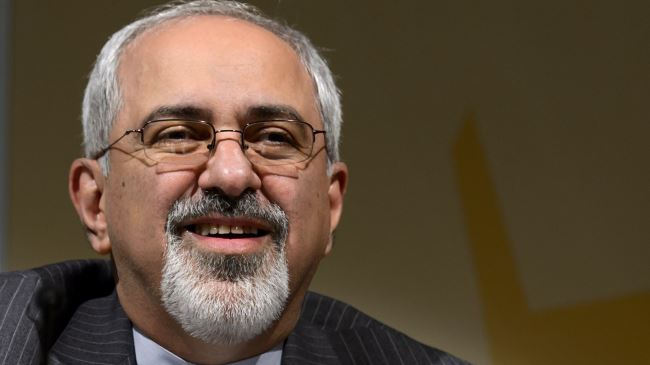 Iran�s Foreign Minister Mohammad Javad Zarif says Iran and six major world powers can reach an end game agreement in their nuclear talks in less than a year.
Iran�s Foreign Minister Mohammad Javad Zarif says Iran and six major world powers can reach an end game agreement in their nuclear talks in less than a year.In a Thursday interview with CNN, Zarif expressed optimism that Iran and the six powers can start serious work on Friday morning to prepare �some sort of a joint statement� that would address the �common objective for all seven of us.�
The Iranian foreign minister said that the two sides can reach �an end game - that we all tried to reach - within a limited period of time, hopefully in less than a year, and a series of actions that the two sides have to take reciprocally in order to build confidence and address their most immediate concerns.�
�I believe it is possible to reach an understanding or agreement before we close these negotiations tomorrow (Friday) evening,� Zarif pointed out.
�I believe the ingredients are there. It takes a quite a bit of effort and a quite a bit of good faith and political will. I know that we have it on our side and I hope that we can expect the same from the other side and in that fashion and in that spirit we can move forward,� he added.
The head of Iran�s diplomatic apparatus rejected remarks by Chairman of the US Congress Committee on Foreign Relations Robert Mendez, who had said if Iran wants favorable results from the nuclear negotiations, it should suspend its uranium enrichment activities.
He referred to Iran's suspension of its enrichment program from 2003 to 2005 to build confidence, adding, �So we have tested that and it did not produce positive results. We are not going to test that again,� Zarif said.
�I believe that people should stop trying to impose a solution. They have got to be creative. They have got to be innovative and deal with situations on the basis of realities not on the basis of illusions and I believe at the end of the day everybody will be happy with a deal that can be achieved today. Otherwise one year down the road we will be wishing for the same deal that could be achieved today and the opportunity was missed.� he added.
�There is a window of opportunity now that has been created by the Iranian people through the election of President [Hassan] Rouhani and that opportunity needs to be seized and I believe the people should accept the realities; should learn a lesson from what has been achieved in the past,� he said.
Zarif pointed to the West�s policy of sanctions and pressure against Iran over the past years, adding, �Of course, there has been economic hardship, but in fact instead of 160 centrifuges that were spinning 10 years ago or eight years ago, today we have 19,000 centrifuges. So, that is what sanctions and pressures and intimidations have brought ... I think that is a failed policy.�
�It needs to be changed and tomorrow (Friday) we have a chance to change it and reverse that trend. Otherwise, we would engage in a lose-lose situation that we have been engaged in for the past eight to ten years,� the Iranian foreign minister concluded.
On Friday, Israel�s Prime Minister Benjamin Netanyahu utterly rejected an emerging agreement in the course of nuclear talks between Iran and the six world powers as a �bad deal.�
US Secretary of State John Kerry is scheduled to travel to Geneva to take part in the nuclear talks after signs that Iran and the six world powers are likely to achieve an agreement that would involve a partial sanction removal in return for Iran's confidence-building measures over its nuclear energy program.
News about Kerry�s travel plan came a few hours after Zarif said on Thursday that it is �possible� for Tehran and the six world powers to reach a deal over Iran�s nuclear issue during the current talks, which began on Thursday.
French Foreign Minister Laurent Fabius, British Foreign Secretary William Hague and German Foreign Minister Guido Westerwelle are also heading to Geneva to attend the nuclear negotiations.
Zarif also canceled his planned trip to the Italian capital of Rome on Wednesday to stay in Geneva.
Ahead of the first session of nuclear talks, Zarif held a breakfast meeting with Ashton, who represents the six countries in the nuclear negotiations with Tehran.
Ashton�s spokesman, Michael Mann, described the Thursday morning meeting as a �good opening session.�
By Press TV
The Iran Project is not responsible for the content of quoted articles.











